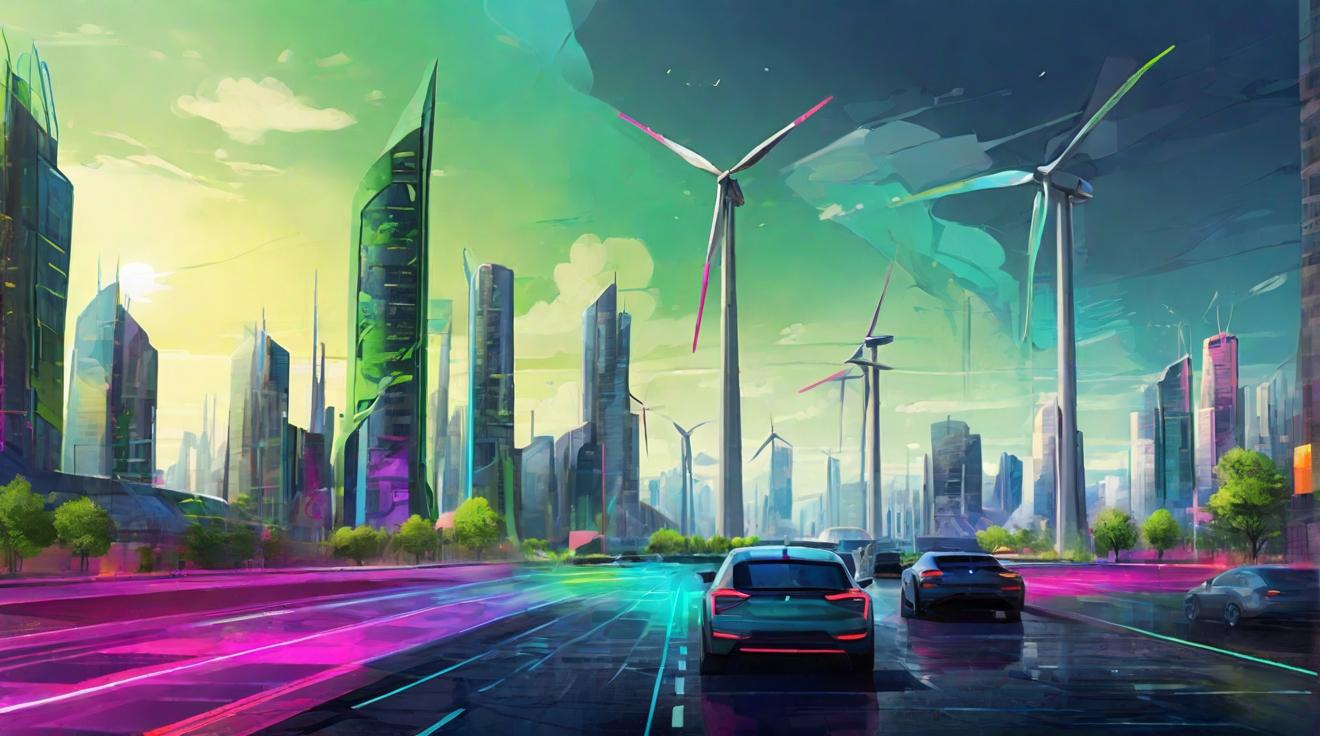Green Technology: Revolutionizing Environmental Impact
Green technology, also known as green tech, is a game-changing concept that aims to minimize humanity’s detrimental impact on the environment. By actively reversing or mitigating the negative effects of human activities, green tech companies are paving the way for a greener future.
This field encompasses a wide range of industries, each focusing on specific environmental issues. One such area is the circular economy, where companies strive to create sustainable systems that repurpose waste products, reducing pollution and minimizing waste. These innovative designs have the potential to create closed-loop technologies that prioritize sustainability.
Battery technology is another crucial sector within green tech. Researchers in this field are constantly pushing boundaries to develop batteries with higher energy density and lower environmental construction costs. These next-generation batteries won’t just power electronic devices and electric vehicles (EVs), but also serve as storage for renewable energy sources like solar, wind, and hydroelectric power.
Hydrogen and electric car technologies are also gaining momentum, offering alternatives to traditional fossil fuel-powered vehicles. Additionally, carbon capture, utilization, and storage (CCUS) projects are working to pull carbon dioxide out of the atmosphere, effectively reducing the carbon footprint of heavy industries.
While these advancements seem promising, it’s important to distinguish between companies actively working on green technology solutions and those with merely green aspirations. The former are dedicated to tangible solutions, whereas the latter often fall short.
Leading the charge in green tech are several notable companies. Malta, a molten salt battery specialist, was initially a moonshot project under Google’s X division. Their innovative power storage solutions show great potential for the future. Carbfix, an Icelandic company, focuses on carbon capture by injecting captured carbon dioxide into underground rock formations, rather than relying on immediate commercial uses.
Two other influential green tech companies to keep an eye on are Samsung SDI and Mosa Meat. Samsung SDI specializes in solid-state batteries, which boast enhanced integrity and safety features compared to traditional lithium-ion batteries. Meanwhile, Mosa Meat, based in the Netherlands, pioneers lab-grown meat, a revolutionary concept that could transform the food industry.
So, what does the future hold for green technology? In essence, green tech is inherently future-oriented, with companies constantly striving to expand their scope and impact. However, funding challenges continue to impede progress in this field, highlighting the need for broader financial support.
In conclusion, green technology plays a vital role in combating climate change. Nevertheless, the various technologies within this space face significant challenges, such as reducing costs to enable widespread adoption. Despite these hurdles, green tech will undoubtedly be an essential factor in creating a sustainable future for generations to come.
Analyst comment
Positive news. The market for green technology is expected to grow as more companies and industries prioritize sustainability. Advancements in areas such as circular economy, battery technology, hydrogen and electric cars, and carbon capture will continue to drive innovation. Funding challenges remain, but broader financial support is needed to overcome these hurdles for widespread adoption. Green tech will play a vital role in combating climate change and creating a sustainable future.













